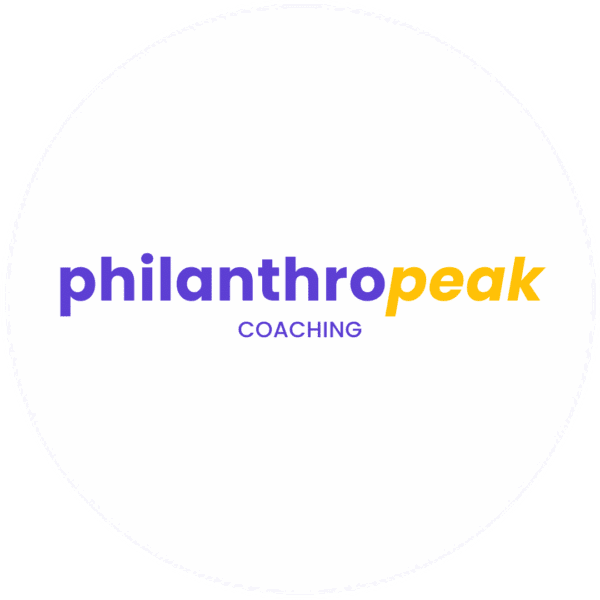
Boost Your Impact: ADHD Coach Personal Branding Strategies
Table of Contents
ToggleTable Of Contents:
Many ADHD coaches struggle to effectively communicate their unique value to potential clients. Establishing a strong personal brand can enhance visibility and credibility, leading to increased engagement and growth in their practice. This article will explore strategies for crafting a compelling personal brand narrative, building an engaging online presence, and establishing authority. By applying these insights, coaches can improve their impact and boost the quality of life for those they serve while adopting a mindset focused on strategic growth and analytics in their branding efforts.
Understanding Personal Branding for ADHD Coaches

Identifying a unique value proposition is crucial for ADHD coaches aiming to establish a memorable brand in the field of neurodiversity. This section will cover effective strategies to highlight personal strengths and address misconceptions about ADHD in coaching, enhancing credibility and attracting attention in search engines through philanthropy services. Understanding these elements can significantly impact a coach’s organization and outreach efforts.
Identifying Unique Value Propositions as an ADHD Coach
ADHD coaches must define their unique value propositions to stand out in a crowded market. This involves crafting a compelling narrative that showcases their personal experiences and understanding of challenges like procrastination, which can resonate deeply with potential clients. By highlighting specific strengths and the strategies used in their marketing strategy, coaches can create a strong connection that offers insight into how they effectively support their clients.
Integrating content marketing into a coach’s personal branding can significantly enhance visibility and engagement. Regularly publishing informative newsletters that address common ADHD-related topics not only demonstrates expertise but also allows coaches to directly share valuable resources with their audience. This approach not only builds trust but establishes the coach as a thought leader in the ADHD community, ultimately increasing their impact and reach.
Recognising Common Misconceptions About ADHD in Coaching
One common misconception about ADHD is the belief that it solely equates to an inability to focus, which can undermine the value that ADHD coaches bring to their clients. This perspective neglects the strengths associated with ADHD, such as creativity and high energy, which can significantly enhance motivation. By addressing these misunderstandings, coaches can foster confidence in their clients, recognising that managing ADHD effectively involves leveraging both challenges and strengths.
Another prevalent myth is that ADHD coaching is merely a form of therapy, which might dissuade potential clients seeking practical support. While therapy often focuses on past experiences and emotional challenges, ADHD coaching emphasises actionable strategies for improving memory and organisation. By clarifying the differences between coaching and therapy, ADHD coaches can attract clients who are looking for direct, goal-oriented assistance in navigating their unique challenges.
Personal branding is the foundation of connection for ADHD coaches. Now, it’s time to shape that foundation into a compelling narrative that speaks to those who seek your guidance.
Crafting Your Personal Brand Narrative

Creating a compelling personal brand narrative is essential for ADHD coaches aiming to build a strong reputation in their field. This involves developing a story that resonates with potential clients, showcasing unique journeys, and sharing personal experiences with ADHD. By focusing on these elements, coaches can enhance their content creation efforts and connect authentically with their audience, ultimately guiding clients with actionable strategies that support their goals.
Developing a Compelling Story That Resonates
ADHD coaches benefit from developing a personal brand narrative that captivates potential clients by blending authenticity with emotional resonance. This narrative should incorporate various elements of their journey, creating a unique palette that vividly illustrates their experiences with ADHD. By engaging in thoughtful conversations about their challenges and triumphs, coaches can foster connections that help clients see the real value of the support they offer.
A clear and relatable brand story not only enhances web design but also strengthens a coach’s online presence. By weaving in personal anecdotes that highlight both struggles and victories, ADHD coaches can evoke emotion and demonstrate how their insights and strategies directly address client needs. This approach ensures that prospective clients can understand the distinct benefits of working with a coach who genuinely relates to their journey.
Highlighting Your Journey and Experiences With ADHD
ADHD coaches can significantly enhance their personal branding by sharing their unique journeys and experiences with the condition. This not only helps to create a strong value proposition but also engages potential clients on a deeper level. By utilising social media platforms, coaches can share relatable stories that highlight both the challenges and successes encountered throughout their ADHD journey, fostering a sense of community and understanding among their audience.
Incorporating research and insights into the discussion can further enrich the narrative. ADHD coaches can demonstrate the impact of their experiences on their coaching methods by referencing studies or strategies that resonate with their clients. Additionally, building a mailing list enables coaches to share personalised content and automated resources, ensuring that their audience receives consistent value and guidance tailored to their specific needs.
Your personal brand is your story, but the world needs to see it. Next, find out how to create an online presence that brings your narrative to life.
Building an Engaging Online Presence

Choosing the right platforms is vital for ADHD coaches aiming to connect with their audience and enhance their impact. Understanding where potential clients spend their time helps in engaging effectively. Coaches must also focus on creating content that showcases their brand values, addressing client pain points and building loyalty. These strategies lay the groundwork for a compelling online presence.
Selecting the Right Platforms for Your Audience
ADHD coaches should focus on selecting platforms that align effectively with their audience’s preferences and behaviours to enhance their impact. By utilising social media analytics, coaches can identify which platforms are frequented by their target demographic. This tailored approach not only reduces the fear of misstepping but also increases productivity in reaching clients where they are most active.
Email marketing remains a powerful tool for ADHD coaches, allowing for direct communication and personalised content delivery. By integrating training resources and insights into email campaigns, coaches can engage their audience meaningfully. This strategy fosters a deeper connection and encourages potential clients to follow through with their interest, creating pathways to further interaction and support.
Creating Content That Reflects Your Brand Values
Creating content that reflects brand values is essential for ADHD coaches striving for visibility in their niche. This content should include visually engaging graphics that communicate the coach’s unique approach and philosophy. By incorporating a cohesive landing page design that aligns with their brand, coaches can effectively engage visitors and encourage them to explore further, laying the groundwork for successful lead generation.
Moreover, social media marketing serves as a powerful platform for ADHD coaches to share authentic content that resonates with their audience. By creating posts that highlight both personal experiences and professional insights, coaches can build trust and foster connections, making it easier for potential clients to relate to their journey. This approach not only enhances visibility but also positions coaches as credible sources of information and support within the ADHD community.
An engaging online presence draws attention. Yet, to maintain that interest, credibility and authority must follow closely behind.
Establishing Credibility and Authority

Establishing credibility and authority is essential for ADHD coaches seeking to enhance their impact. Effectively utilising testimonials from clients showcases knowledge and builds trust. Furthermore, sharing success stories and case studies illustrates how coaches address issues like stress and goal-setting, positioning them as thought leaders in the ADHD coaching community. These strategies provide practical insights that can attract potential clients looking for reliable support.
Utilising Testimonials From Clients Effectively
Utilising testimonials from clients is a significant way for ADHD coaches to establish credibility and authority in their field. By showcasing real-life stories of collaboration, these testimonials highlight how coaching sessions can enhance executive functions and leadership skills. Sharing feedback that emphasises specific growth in areas like organisation and time management not only builds trust but also demonstrates the tangible benefits of their services, making it easier for potential clients to see the value in engaging with a coach.
Coaches can elevate their personal brand by integrating client testimonials into their marketing materials and online presence, including social media and websites. Visual elements, such as photography of satisfied clients or their transformations, coupled with written testimonials, can further enhance the message. This combination provides an authentic representation of the coaching journey, offering reassurance to those seeking support with ADHD-related challenges and showcasing the coach’s expertise effectively.
Sharing Success Stories and Case Studies
Sharing success stories and case studies is a powerful method for ADHD coaches to establish credibility and authority. By illustrating specific behaviours and strategies that have led to positive outcomes, coaches can effectively demonstrate their capabilities to a target audience. These narratives not only showcase results but also emphasise relatable experiences, allowing potential clients to envision themselves achieving similar goals, regardless of gender or personal background.
Incorporating storytelling into marketing efforts helps coaches connect with prospective clients on a deeper level. By presenting detailed examples of how clients transformed their behaviours under coaching, ADHD coaches can illustrate the practical benefits of their services. This approach reassures potential clients about the effectiveness of coaching while fostering trust in the coach’s expertise, further solidifying their position as a go-to specialist for those navigating ADHD challenges.
Building trust is vital for success. Next, let’s explore effective networking strategies that can help ADHD coaches connect and thrive.
Networking Strategies for ADHD Coaches

Networking is a vital superpower for ADHD coaches looking to amplify their impact. Collaborating with fellow coaches and professionals can create mutually beneficial relationships that enhance expertise and broaden visibility. Engaging in community events and workshops allows coaches to connect directly with potential clients while showcasing their unique selling proposition. Both strategies provide practical insights that strengthen personal branding and establish a robust network.
Collaborating With Other Coaches and Professionals
Collaborating with other coaches and professionals can significantly enhance an ADHD coach’s credibility and reach. By partnering with individuals who share similar values and practices, coaches can create synergistic relationships that serve as powerful touchpoints within their communities. This social proof, derived from endorsements and collaborative projects, can provide reassurance to potential clients, showcasing the coach’s empathetic approach and solidifying their unique value proposition.
In addition, establishing a cohesive style guide among collaborators ensures that any joint marketing efforts maintain consistency and professionalism. This attention to detail not only strengthens each coach’s brand identity but also enhances their collective visibility within the ADHD community. By diversifying their networks and collaborating to share insights, coaches can better address the needs and challenges facing individuals with ADHD, ultimately boosting their impact in the field.
Engaging in Community Events and Workshops
Engaging in community events and workshops offers ADHD coaches an invaluable opportunity to enhance their personal branding and establish credibility within their local networks. By actively participating in these gatherings, coaches can showcase their creativity and unique approaches to supporting individuals with ADHD, helping to address common challenges such as impulsivity and organisation. This direct interaction allows coaches to resonate with potential clients, reinforcing their commitment to understanding and addressing the nuances of ADHD.
When designing their presence at these events, ADHD coaches should consider their colour scheme and overall aesthetics to align with their personal branding. A visually appealing setup can attract attention and make a memorable impression on attendees. By fostering connections and sharing insights about their coaching techniques, coaches can build meaningful relationships that extend beyond the event, ultimately benefiting their practice and enhancing their community impact.
Networking opens doors, but it is the consistency of your brand that keeps them open. Now, let’s explore how to maintain that steady presence that speaks to your audience even when the noise grows loud.
Maintaining Consistency in Your Branding Efforts

Regularly reviewing and updating branding strategies is fundamental for ADHD coaches aiming to boost their impact and attract clients. Measuring the effectiveness of these strategies ensures that branding efforts act as a magnet for potential clients and lead to increased income. The following sections will explore practical methods to review and optimise branding approaches, along with techniques for assessing their impact.
Regularly Reviewing and Updating Your Brand Strategies
ADHD coaches benefit from regularly reviewing and updating their brand strategies to remain relevant in a dynamic market. This process involves analysing client feedback, market trends, and personal experiences to ensure alignment between the coach’s values and the needs of their target audience. By making necessary adjustments, coaches can effectively enhance their credibility and visibility, fostering stronger connections with clients who seek tailored support.
To maintain a consistent brand presence, ADHD coaches should implement a schedule for evaluating their branding efforts, such as quarterly assessments. These evaluations allow them to identify which strategies resonate well and which may require refinement. By remaining proactive in their branding approaches, coaches can continuously boost their impact and attract clients who value their expertise in navigating ADHD challenges.
Measuring Impact and Effectiveness of Your Branding
Measuring the impact and effectiveness of branding efforts is vital for ADHD coaches who wish to enhance their visibility and attract potential clients. This involves tracking key performance indicators such as engagement rates on social media, the number of newsletter subscriptions, and the conversion rates from inquiries to coaching sessions. By regularly analysing these metrics, coaches can identify trends that indicate their branding strategies are resonating with their audience, ultimately guiding more effective marketing approaches.
Furthermore, seeking direct feedback from clients can provide deeper insights into how well the branding aligns with client needs and expectations. Conducting informal surveys or asking for testimonials after sessions allows coaches to gather valuable information on their perceived value and strengths from the client’s perspective. This feedback loop not only helps refine branding strategies but also reinforces the coach’s commitment to addressing the unique challenges faced by individuals with ADHD.
Consistency in branding creates a solid foundation, but the heart of true impact lies in being genuine. Embracing your authentic self in coaching not only humanises your message but also invites deeper connections with your clients.
Embracing Your Authentic Self in Coaching

Celebrating strengths and embracing challenges are essential for ADHD coaches seeking to connect authentically with clients. By recognising their unique experiences, coaches can foster genuine relationships that resonate deeply with those they support. This section will provide insights on how acknowledging personal strengths and challenges enhances coaching effectiveness and builds trust with clients.
These approaches not only highlight the coach’s authenticity but also establish a solid foundation for meaningful interactions, leading to enhanced client engagement and satisfaction.
Celebrating Your Strengths and Embracing Challenges
ADHD coaches can amplify their personal brand by recognising and celebrating their strengths, which include creativity, resilience, and empathy. Leveraging these positive attributes allows coaches to connect more authentically with clients, creating an atmosphere of trust and understanding. By sharing specific experiences where these strengths have benefited their coaching practice, ADHD coaches can demonstrate their unique approach and effectiveness in helping clients navigate challenges.
Embracing challenges, such as those related to attention and organisation, can also enhance a coach’s credibility. When ADHD coaches openly discuss their struggles, they position themselves as relatable individuals who understand the complexities of ADHD. This transparency not only humanises the coaching experience but also encourages potential clients to seek support from someone who has first-hand knowledge of the journey, ultimately driving engagement and fostering a strong professional relationship.
Connecting With Clients on a Genuine Level
For ADHD coaches, connecting with clients on a genuine level begins with authentic communication that acknowledges shared experiences. By openly discussing their own journeys, coaches demonstrate empathy and relatability, allowing clients to feel understood and less isolated in their struggles. This connection can help create a supportive environment where clients feel safe to express their challenges and aspirations.
Furthermore, establishing trust requires consistent engagement with clients through various channels, such as personalised emails or social media interactions. ADHD coaches can enhance their approach by actively listening to clients’ concerns and providing tailored feedback that addresses specific needs. This attention to individual experiences not only strengthens the coach-client relationship but also reinforces the coach’s commitment to genuine support and effective strategies for managing ADHD-related challenges.
Conclusion
Effective personal branding is vital for ADHD coaches seeking to make a significant impact in their field. By clearly defining their unique value propositions, addressing misconceptions about ADHD, and sharing authentic narratives, coaches can resonate with potential clients while building credibility. Engaging with audiences through relevant content and strategic networking ensures that their presence stands out in a competitive market. Ultimately, these strategies enable ADHD coaches to foster deeper connections and significantly enhance their coaching effectiveness, making a meaningful difference in the lives of those they support.




